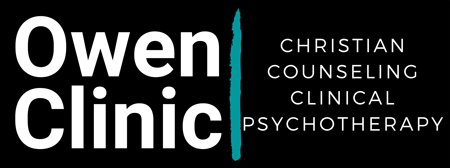Obsessive-Compulsive Disorder: The Role of Counseling in Managing and Treating OCD
Obsessive-Compulsive Disorder (OCD) is a complex mental health condition characterized by intrusive thoughts, images, or urges (obsessions) that lead to repetitive behaviors or mental acts (compulsions). These symptoms can become debilitating, significantly impacting daily functioning and quality of life. OCD is estimated to affect around 2-3% of the global population, and it can manifest in various ways. While OCD can be challenging to manage, counseling has proven to be a vital component in helping individuals overcome this disorder.
Understanding OCD
OCD typically involves a cycle of obsessions and compulsions. Obsessions are unwanted, persistent thoughts or impulses that cause distress or anxiety. Common obsessions include fears of contamination, aggressive impulses, or concerns about order and symmetry. In response to these obsessions, individuals may engage in compulsions—repetitive behaviors or mental acts aimed at reducing the distress or preventing a feared event. Compulsions often become ritualistic and can interfere with daily life.
OCD varies in severity, and without treatment, it tends to be chronic, with symptoms waxing and waning over time. The exact cause of OCD is not fully understood, but factors like genetics, brain structure, and environmental influences are believed to contribute. Treatment for OCD typically involves a combination of medication and psychotherapy, with counseling playing a pivotal role in helping individuals manage and reduce symptoms.
The Role of Counseling in Treating OCD
Counseling, or psychotherapy, is an effective treatment option for OCD, offering several therapeutic approaches tailored to the unique needs of each individual. Through counseling, individuals with OCD can learn strategies to manage their symptoms, challenge maladaptive thoughts, and improve their overall quality of life.
Cognitive Behavioral Therapy (CBT): CBT is the most commonly recommended form of psychotherapy for OCD. This structured, goal-oriented therapy focuses on changing patterns of thinking or behavior contributing to distress. In the context of OCD, CBT helps individuals challenge irrational thoughts and modify compulsive behaviors.
Exposure and Response Prevention (ERP): ERP, a subtype of CBT, is considered the gold standard for OCD treatment. This therapy involves gradual exposure to feared situations or thoughts (exposure) and preventing compulsive behavior (response prevention). Over time, this process helps reduce the anxiety associated with the obsession and the need to perform the compulsion.
Cognitive Therapy: This approach focuses on identifying and challenging distorted beliefs related to OCD. By changing how individuals think about their obsessions, cognitive therapy helps reduce the distress associated with OCD.
Acceptance and Commitment Therapy (ACT): ACT is a form of cognitive behavioral therapy emphasizing acceptance of thoughts and feelings rather than fighting them. In the context of OCD, ACT helps individuals learn to live with intrusive thoughts without engaging in compulsions, fostering psychological flexibility.
Mindfulness-Based Cognitive Therapy (MBCT): MBCT combines elements of CBT with mindfulness practices. This therapy helps individuals with OCD become aware of their thoughts and feelings without judgment, reducing the impact of obsessions and the need for compulsive behaviors. Mindfulness techniques can help patients observe their thoughts and let them pass without acting on them.
Group Therapy: Group therapy provides a supportive environment where individuals with OCD can share their experiences and learn from one another. This therapy offers a sense of community and helps individuals realize they are not alone in their struggles. Group therapy can also provide practical insights and coping strategies from people who understand the unique challenges of OCD.
Family Therapy: Family therapy involves working with family members to address how OCD affects relationships and how loved ones can support the individual’s treatment. This therapy helps reduce family conflicts and educates family members about the nature of OCD, fostering a supportive home environment conducive to healing.
Benefits of Counseling for OCD
Counseling offers numerous benefits for individuals with OCD, extending beyond symptom relief to improving overall well-being. These benefits include:
Symptom Reduction: Counseling helps individuals reduce the frequency and intensity of obsessions and compulsions, leading to improved daily functioning.
Empowerment: Through counseling, individuals gain tools and strategies to manage their OCD, fostering a sense of control over their thoughts and behaviors.
Improved Relationships: OCD can strain relationships with loved ones. Counseling helps individuals and their families communicate more effectively and manage conflicts, leading to healthier relationships.
Enhanced Quality of Life: By addressing the root causes of distress and promoting healing, counseling improves the overall quality of life for individuals with OCD.
Long-Term Coping: Counseling provides individuals with long-term coping strategies to manage stress and prevent relapse, promoting resilience and psychological well-being.
Challenges and Considerations
While counseling is highly effective for many individuals with OCD, several challenges and considerations should be acknowledged:
Stigma: Mental health stigma can deter individuals from seeking help. Raising awareness and promoting understanding of OCD can help reduce this barrier.
Access to Care: Not everyone has access to quality mental health care. Expanding access to counseling services, particularly in underserved communities, is crucial.
Individual Differences: Each person’s experience of OCD is unique. Therefore, counseling approaches must be tailored to individual needs and preferences.
Therapeutic Alliance: The relationship between the counselor and the patient is crucial for successful therapy. Building trust and rapport takes time but is essential for effective treatment.
Obsessive-Compulsive Disorder is a challenging condition that can significantly impact daily life. However, with proper treatment, individuals can manage and reduce their symptoms, improving well-being. Counseling plays a critical role in this process, offering a range of therapeutic approaches that address the diverse needs of individuals with OCD. Through counseling, individuals can learn strategies to manage their obsessions and compulsions, challenge distorted thinking, and enhance their quality of life. By improving access to care and reducing stigma, more people can benefit from the transformative power of counseling in overcoming OCD.
For counseling services, visit https://www.owenclinic.net or call 405-655-5180 or 405-740-1249.

